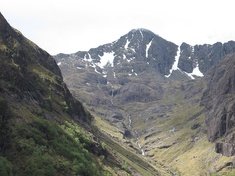Featured Quizzes
User Quizzes
Create Quiz
Data and Charts
Badges and Games
About JetPunk
JetPunk Shop
Dark Mode

All Celtic Languages on a Map
Can you name all the Celtic languages on the map below?
All figures are according to Wikipedia, with percentages reflecting the population who speaks that language within the homeland Celtic nation
Rate:
Last updated: April 2, 2024
You have not attempted this quiz yet.
More quiz info >>
| First submitted | February 29, 2020 |
| Times taken | 2,219 |
| Average score | 83.3% |
| Rating | 4.81 | Report this quiz | Report |
2:00
Enter language here
0
/ 6 guessed
Time Used
00:00
Best Time
00:00
The quiz is paused. You have remaining.
Scoring
You scored / = %
This beats or equals
% of test takers
also scored 100%
The average score is
Your high score is
Your fastest time is
Keep scrolling down for answers and more stats ...
|
|
||||||||||||||||||||||||||||||||||||||||||||||||||||||||||||||||||
New and Popular
Save Your Progress
All Languages by Language Family
Quiz series by Jiaozira
Copyright H Brothers Inc, 2008–2024
Contact Us | Go To Top | View Mobile Site







The Welsh language appears to be the healthiest Celtic language, with strongholds and hundreds of thousands of native speakers in the northwest. There are Welsh speakers in Patagonia from an old colony, but they number perhaps only a thousand or two.
The Irish language is today the second strongest Celtic language. Although its Gaeltachtaí have been declining, the language is a national language of Ireland, and has grown in urban centres like Dublin.
Scottish Gaelic is in slow decline in the Western Islands (where it is still a majority), with some revival happening in Glasgow. It is also spoken in Nova Scotia by a few hundred native speakers, and a thousand more know the language, however its decline has been faster than in Scotland.
Manx was declared extinct in 2009, and its last native speaker died in the 1977. However, it is undergoing a revival on the Isle of Man, and this is helped by how recently the language was natively spoken on the island (we know how the language sounds, for example).
...this is unlike Cornish, the most humble Celtic language today and only spoken by a few hundred people who are dedicated to giving the tongue a second life. Cornish died out in the early 19th Century, and therefore had to be reconstructed as Cornish people recover their heritage language once more.
In Wales, all official writing and signage is bilingual Welsh and English, and all children in Wales are taught at least some Welsh in school.